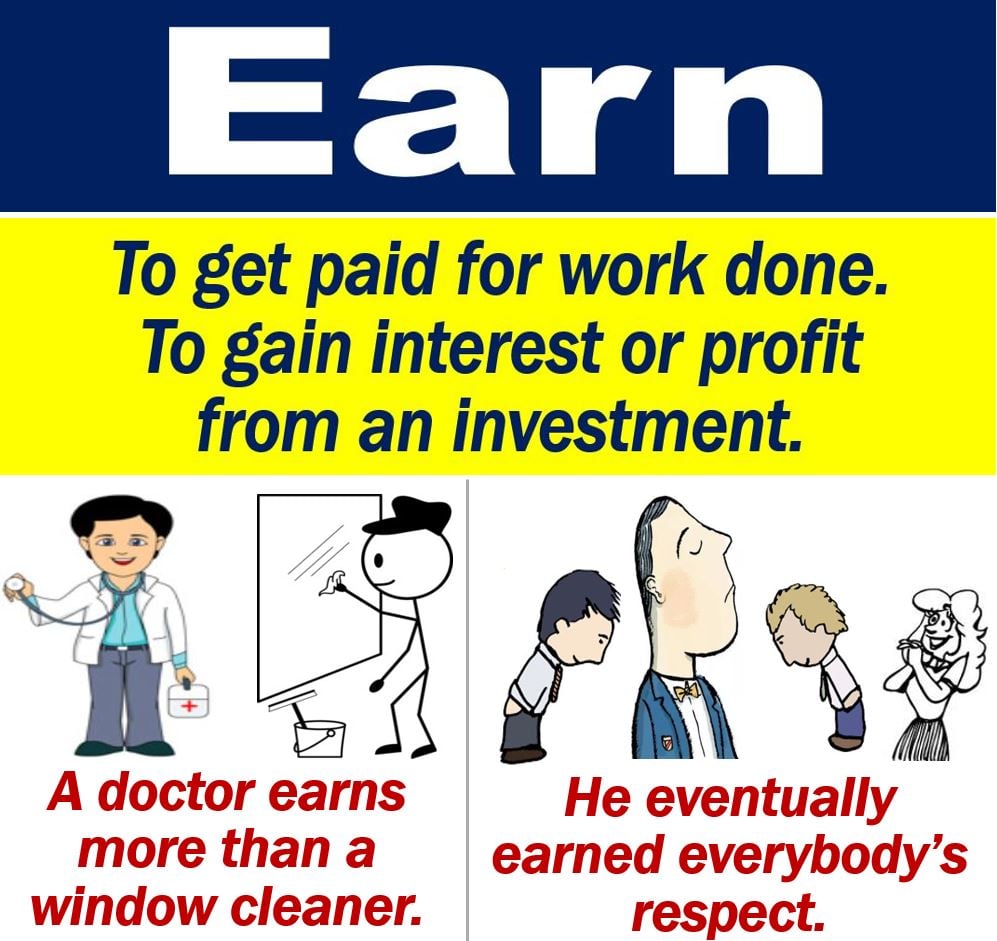To earn means to receive money for work that you have done. In other words, to gain money for one’s labor. In most cases, we earn money, but it is also possible to receive something of value. We also use the word for gaining non-monetary things from other people. For example, we can say “He eventually earned their respect,” or “through the years she has earned my esteem and affection.”
We sometimes use the phrasal verb ‘to earn something out‘ in publishing. It means to receive enough income through sales to equal the advance the author received.
If I say “His book did not earn out its advance,” is that good or bad news? It is bad news. It means that sales never matched the advance that the publisher gave the author.
The Oxford Living Dictionaries have the following definition of the word:
“1. Obtain (money in return for labor or services. 1.1 (Of capital invested) gain (money) as interest or profit.”
“1.2 Gain deservedly in return for one’s behavior or achievements.”

Etymology of earn
Etymology is the study of the origin of words and also how their meanings have evolved.
The term comes from the Old English word Earnian, which meant “deserve, merit, get a reward for labor.”
The Old English word came from the Germanic word Aznon, which meant “do harvest work, serve.” It probably also came from the Old Frisian word Esna, which meant “pay, reward.”
Earn, earnings, and earner
Earnings
In business English, ‘earnings’ means the amount of profit a company generated over a specific period. Most companies report their earnings every quarter.
EPS is the amount of money a business allocates to each outstanding share of a common stock. EPS stands for earnings per share.
Earner
In a household, an earner is somebody who earns money, i.e., they work and receive payment for it. Perhaps the earner has a job, works for himself or herself, or has a business.
An earner may also be an activity or sector. In Mexico, for example, tourism is an important earner of foreign currency.
If a part-time activity starts to earn an income, we might refer to it as a ‘nice little earner.’ For example, somebody might say “My catering hobby has become a nice little earner.”
